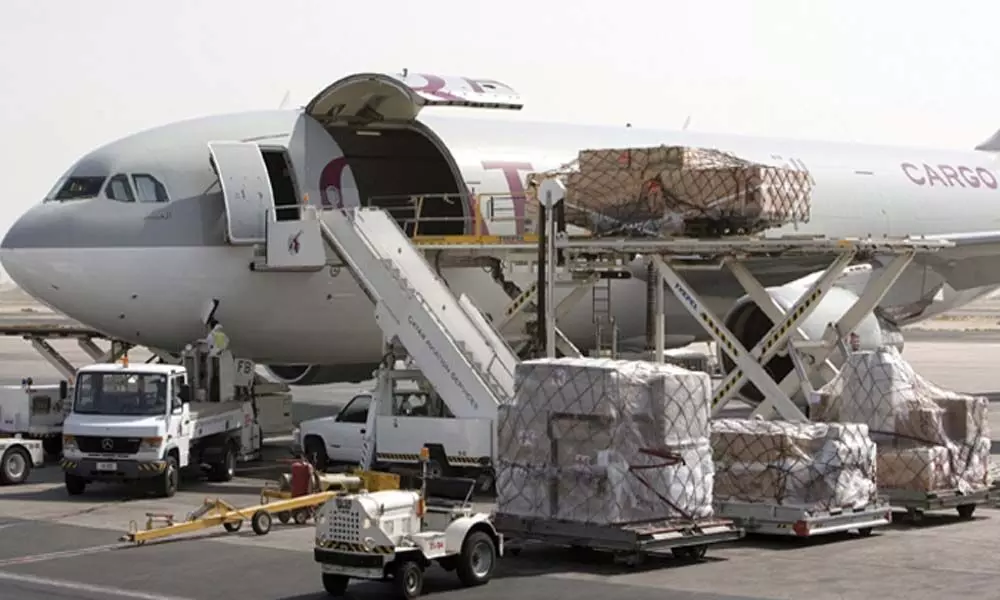Air cargo remains an important economic growth engine: ACI
Many airports have managed to grow their cargo operations during pandemic, which has proven crucial in providing liquidity for airport operators, ensured solvency of the airport business
image for illustrative purpose

"Divergences in policy support are a second source of the deepening divide. We are seeing continued sizable fiscal support in advanced economies with $4.6 trillion of announced pandemic-related measures available in 2021 and beyond. The upward global growth revision for 2022 largely reflects anticipated additional fiscal support in the United States and from the next generation European Union funds.
"On the other hand, in emerging market and developing economies, most measures expired in 2020 and they are looking to rebuild fiscal buffers. Some emerging markets like Brazil, Hungary, Mexico, Russia, and Turkey have also begun raising monetary policy rates to head off upward price pressures. Commodity exporters have benefited from higher-than-anticipated commodity prices," the IMF said in its latest global economic outlook.
The success of global economic recovery is largely contingent upon how fast the world can vaccinate everyone on the planet. And there lies the important role of the air cargo industry and others in the aviation sector.
The Montreal-based Airports Council International (ACI) World said air cargo remains an important engine of economic growth and plays a crucial role in the ongoing fight against the pandemic while facilitating the recovery phase. It noted that many airports have managed to sustain or even grow their cargo operations during the pandemic, which has proven crucial in providing liquidity for airport operators and in some cases, even ensured the longer-term solvency of the airport business.
The pandemic kept many cargo airlines busy throughout 2020. Topping the list measured in terms of scheduled cargo-ton kilometers were two American-based cargo and logistics firms – Federal Express (19.7 billion CTKs) and United Parcel Service (14.4 billion CTKs). FedEx saw its revenues surged during the period with huge demand for business-to-business shipments and US domestic package services. UPS saw its FY 2020 revenues rose 14.2 percent to $84.6 billion in 2020.
Qatar Airways (13.7 billion); Emirates (9.6 billion), and; Cathay Pacific Airways (8.1 billion) ranked 3rd, 4th and 5th, respectively in terms of CTKs hauled in 2020, according to WATS 2021.
ACI had since published a complimentary report to help airport operators develop successful cargo strategies that can contribute to the sustained recovery of the industry by developing alternative revenue streams. The ACI report, titled Developing Cargo at Airports guide has been prepared in collaboration with – and sponsored by – Netherlands Airport Consultants (NACO) and InterVISTAS. The guide includes inputs from global airports and air cargo industry experts.
"As airports come out of the pandemic and look to ensure long-term financial sustainability through the diversification of their revenue streams, cargo is an important area to be explored," ACI World Director General Luis Felipe de Oliveira said. "A clear cargo strategy will help further airports' understanding of the current landscape and opportunities, as well as build a robust business plan for the future.
"Cargo continues to be critical to global recovery through the supply of goods – such as medicine, medical equipment, and most recently, vaccines – and play a key role in supporting the communities we serve.
"This guide has been developed leveraging NACO's extensive expertise and understanding of the air cargo market, and equally integrates the experience and lessons learned from ACI airport members. These inputs, which are highly appreciated, have been invaluable to establishing a comprehensive landscape of the cargo value chain and understanding of the key elements of a robust airport cargo strategy."
ACI said the report envisions to enable airports that are not currently tapping into the potential of cargo to better understand and identify opportunities and help those airports that currently have extensive cargo operations with the re-formulation of their cargo strategy where needed.
Specifically, the guidance highlights the importance of analyzing current data (i.e., market trends, stakeholders' perspective and cargo demand and supply), developing a clear cargo vision and cargo master plan, and ensuring the capabilities and infrastructure that create a lasting benefit.
"Airports need to manage many aspects to deliver a successful cargo strategy and we hope this report can be an invaluable tool in supporting them throughout the process," NACO-InterVISTAS Director Esther Kromhout said.
"We believe that having a long-term strategy is crucial to inform infrastructure investment and guide operations improvement – allowing airports to collaborate effectively, deliver value and drive positive impact; whether that's meeting net-zero commitments or driving digitalization that provides greater cost and operational efficiencies for customers," he added.

